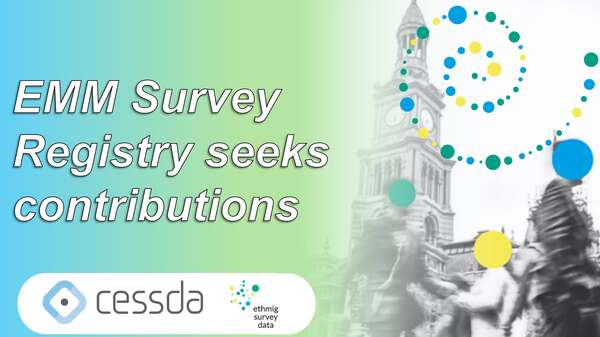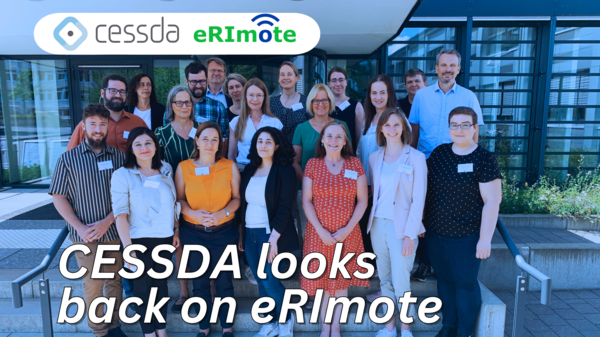News
News from CESSDA

CESSDA Director Bonnie Wolff-Boenisch Joins DDI Executive Board
Following a special election, CESSDA’s Director, Dr. Bonnie Wolff-Boenisch, will be joining the Data Documentation Initiative (DDI) Alliance’s Executive Board.

EMM Survey Registry seeks contributions
Following the webinar co-organized by ESFRI, SSHOC, Horizon Europe, and the National research Foundation of Ukraine, there was significant interest in mapping surveys on Ukrainians living across Europe.

Meet Prof. Katrin Weller, the new head of the GESIS data archive
In March last year, Professor Katrin Weller took over as the new Scientific Director of the Department for Data Services for the Social Sciences (DSS) at GESIS in Cologne (Köln). But who is Professor Katrin Weller?

New Chair and Vice Chair for CESSDA’s General Assembly
AUSSDA’s Matthias Reiter-Pázmándy has been elected as the new chair of CESSDA’s General Assembly. Sikt’s Vigdis Kvalheim replaces him as the vice chair.

CESSDA looks back on eRImote
From June 2022 to November 2024, CESSDA participated in the eRImote project (European Research Infrastructures - Pathway to Improved Resilience through Digital and Remote Access) and contributed to improve the accessibility and resilience of Research Infrastructures.

CESSDA in HumMingBird - a throwback
The HumMingBird project, an ambitious European research initiative uniting 16 partners across 10 countries, recently concluded with significant contributions from CESSDA partners.